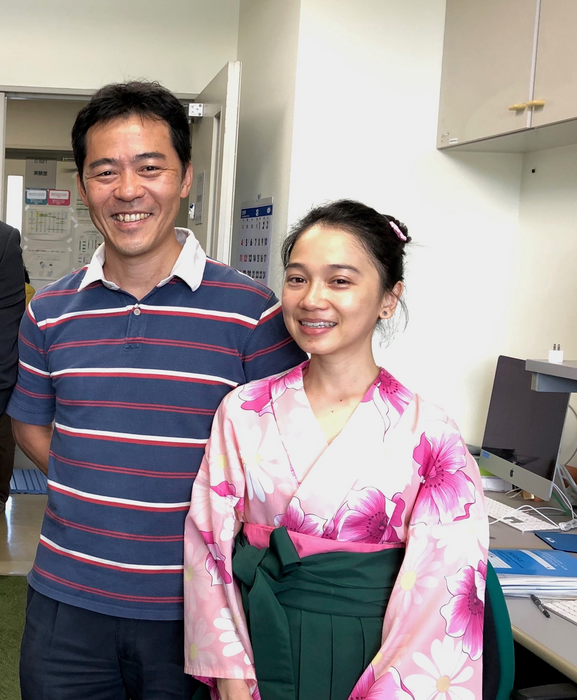When we think of plants, the phrase “stressed out” doesn’t typically come to mind. They are, after all, exempt from paying bills and tackling existential questions. However, environmental changes—both living (biotic) and nonliving (abiotic)—generate significant stressors for plants. New methods to improve plant tolerance and immunity amid climate change are therefore critical.

Credit: Yusuke Saijo and Eliza Loo
When we think of plants, the phrase “stressed out” doesn’t typically come to mind. They are, after all, exempt from paying bills and tackling existential questions. However, environmental changes—both living (biotic) and nonliving (abiotic)—generate significant stressors for plants. New methods to improve plant tolerance and immunity amid climate change are therefore critical.
When a plant’s cell-surface immune receptors detect molecular cues announcing biotic invaders (such as bacteria, fungi, insects, or others), they form receptor complexes with partner proteins, signaling the cellular defense against pathogens. Some of these molecular cues are also generated when abiotic stressors damage plant cells. They include damage-inducible peptides or cellular debris, indicative of plant damage. This immunity signaling in response to abiotic stress lacked clear governing principles and mechanisms prior to a recent study led by Eliza Loo of Nara Institute of Science and Technology.
The results, published in a new MPMI special focus issue, show how immunity signaling can also enhance plant tolerance to abiotic stressors such as high salinity. Corresponding author Yusuke Saijo comments, “Immune receptor pre-activation allows plants to increase the amplitude and gene repertoire of salt-inducible gene expression reprogramming when exposed to high salinity,” which helps enhance salt tolerance.
Surprisingly, they found that immune receptors and signaling components conferred salt tolerance even in plants challenged by non-pathogenic microbes. This suggests that plants can sense and initiate adaptive responses to abiotic stresses—upon detecting alterations in cues presented by plant-inhabiting microbes along fluctuations in environmental conditions—and acquire a broad range of stress tolerance tactics.
“The findings broaden our view of how plants sense and adapt to environmental changes, in particular salt and osmotic stress threatening crop production in agriculture. It also raises a new idea that immune receptors monitor plant-inhabiting microbes, thereby regulating plant adaptation to the environment beyond biotic interactions,” explains Saijo. Our global food supply depends on the health of plants and their ability to overcome stressors.
This lays the foundation for further studies linking biotic and abiotic stress signaling in plant sciences. Understanding the deeply complex relationship between plants and the living and non-living environment that surrounds them is essential to promoting plant health and, ultimately, human health.
For additional details, read “Recognition of Microbe- and Damage-Associated Molecular Patterns by Leucine-Rich Repeat Pattern Recognition Receptor Kinases Confers Salt Tolerance in Plants” in Special Focus Issue Vol. 35, No. 7 /July 2022 of MPMI.
Follow two of the study’s authors on Twitter: Yusuke-Saijo @SaijoYusuke and Eliza Loo @elizaloopi
About Molecular Plant-Microbe Interactions (MPMI)
Molecular Plant-Microbe Interactions® (MPMI) is a gold open access journal that publishes fundamental and advanced applied research on the genetics, genomics, molecular biology, biochemistry, and biophysics of pathological, symbiotic, and associative interactions of microbes, insects, nematodes, or parasitic plants with plants.
Follow us on Twitter @MPMIjournal and visit https://apsjournals.apsnet.org/journal/mpmi to learn more.
Journal
Molecular Plant-Microbe Interactions
DOI
10.1094/MPMI-07-21-0185-FI
Article Title
Recognition of Microbe- and Damage-Associated Molecular Patterns by Leucine-Rich Repeat Pattern Recognition Receptor Kinases Confers Salt Tolerance in Plants
Article Publication Date
14-Jul-2022
COI Statement
The author(s) declare no conflict of interest.




